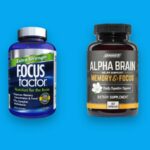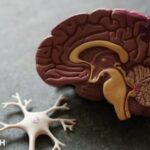
Table of Contents
Introduction
There is growing interest in the use of supplements, such as L-Theanine, for cognitive enhancement. One concern is the potential for adverse interactions between L-Theanine and alcohol.
L-Theanine is an amino acid found in green tea that has been shown to have a calming effect on the brain. L-Theanine has been linked to a number of potential health benefits, including increased focus and decreased anxiety. Recent studies have suggested that L-Theanine may also have a neuroprotective effect and increase cognitive and physical performance.
Alcohol is the most widely used substance of abuse in the world. It can have negative effects on physical and mental health, increase the risk of fatal accidents, and is associated with a variety of long-term health issues. The prevalence of alcohol use disorders in the United States ranges from 8% to 17% of the population.
Since more and more people are using L-Theanine as a supplement to improve cognitive performance, it is important to ensure that it is safe to combine L-Theanine with alcohol.
In this article, we will review the current literature on the safety of combining L-Theanine and alcohol and discuss any possible interactions between the two substances. We will also discuss the potential benefits and drawbacks of using L-Theanine to treat alcohol-related symptoms.
Is It Safe To Mix L-Theanine and Alcohol?
Studies have shown that consuming a combination of alcohol and L-Theanine may result in impaired cognitive function. In one study, participants consumed a combination of caffeine and L-Theanine before performing an attentional task.
Those in the caffeine group performed better than those in the control group during the attention task, but the combination of caffeine and L-Theanine resulted in poorer performance than either substance alone.
In another study, participants were given a beverage containing both caffeine and L-Theanine and asked to perform a reaction time task. The results of this study indicated that the combination of caffeine and L-Theanine reduced reaction time by approximately 5% compared with subjects who consumed a placebo.
There is some evidence to suggest that L-Theanine may increase the effects of alcohol on the brain and result in more severe effects.
L-Theanine and Alcohol Withdrawal
Alcohol withdrawal can affect the central nervous system and cause a number of unpleasant physical symptoms, such as nausea, vomiting, anxiety, fatigue, restlessness, insomnia, depression, and even hallucinations.
Treatment options include medications and cognitive behavioral therapy. However, many people are reluctant to take medication for alcohol withdrawal because of the side effects associated with the drugs. As a result, many of these people turn to alternative therapies to help treat their withdrawal symptoms. L-Theanine is one such therapy.
L-Theanine has been used successfully in the treatment of alcohol withdrawal in a number of studies. For example, a study published in Addiction in 2002 found that combining L-Theanine with Somatostatin was effective in reducing the symptoms of alcohol withdrawal.
Another study published in the American Journal of Therapeutics in 2012 found that L-Theanine was more effective than other supplements at treating the physical and mental symptoms of alcohol withdrawal.
Although the exact mechanism by which L-Theanine relieves symptoms of alcohol withdrawal is unknown, it is believed that it may have a number of beneficial effects on the body, including reducing anxiety and promoting relaxation.
Taking L-Theanine Before Drinking Alcohol
A study was conducted to examine the effect of taking L-Theanine before drinking alcohol on subsequent alcohol-related problems. The study found that individuals who had taken L-Theanine before taking a drink were less likely to develop alcohol-related problems than those who had taken a placebo.
There are several possible explanations for why L-Theanine helps prevent alcohol-related problems. One theory is that it lowers the risk of hangovers by reducing the level of inflammation in the body.
Research has found that L-Theanine has anti-inflammatory properties that can decrease swelling and pain caused by excessive alcohol consumption.
Another theory is that L-Theanine works to increase the activity of the neurotransmitter GABA in the brain, which is known to reduce anxiety and help restore a normal mood after a night of drinking.
Frequently Asked Questions (FAQs)
Is it safe to take L-Theanine, Caffeine, and Alcohol together?
Yes, it is safe to take L-Theanine, Caffeine, and Alcohol together as long as you don’t exceed recommended doses. In fact, research has shown that the combination of caffeine and L-Theanine may reduce the negative effects of caffeine on memory and reaction times.
Is L-Theanine Good For Hangovers?
Research has shown that L-Theanine is effective at reducing the severity of hangover symptoms. In one study, participants who took L-Theanine were found to have less nausea, headaches, and fatigue the morning after drinking than those who took a placebo.
KEY TAKEAWAY
Since studies have shown that L-Theanine can help prevent alcohol withdrawal symptoms and ease the symptoms of a hangover, you may want to consider adding it to your diet the next time you plan to have a few drinks. Take it before and it may help you feel better the next morning.








